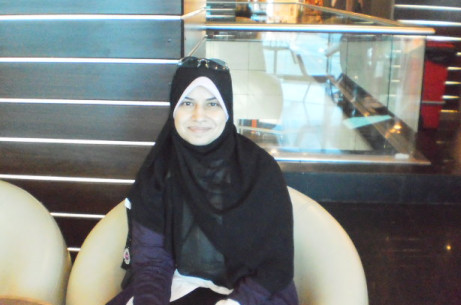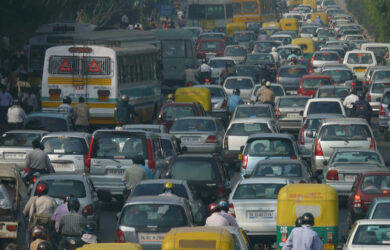
Gates Cambridge Scholar-Elect Mona Jebril will be studying the impact of the Arab Spring on higher education in Palestine when she arrives in Cambridge this autumn.
What will the wider impact of the Arab Spring be on social policies around the Middle East region? Gates Cambridge Scholar Elect Mona Jebril is interested in looking at the effect of changing attitudes to education in Egypt on higher education in Gaza.
“Egypt and Gaza have a close relationship. From 1948 to 1994 Palestinian schools followed the Egyptian curriculum. Many of today’s leaders and academics were basically educated as Egyptians at school level and a large number went to university in Egypt. A large percentage of our political leaders are Egyptian graduates,” she says.
“After the Arab Spring Egyptians have been questioning their own universities’ practices and systems. I want to trace the historic educational link between Egypt and Gaza, to compare and contrast how Egyptian and Gazan universities are run and to study how the Arab Spring might influence the future of Gazan universities,” she says.
“It is an under-researched area and someone has to start looking at it. I am aware, however, of the difficulties and challenges,” adds Mona.
Mona did not intend to go into educational research when she started her academic career, but her family is steeped in the education sector. She was born in 1976 in Kuwait and her father worked in the ministry of higher education in Kuwait while her mother was a teacher.
Throughout her childhood, Mona’s parents gave her a strong sense of the importance of education and this was driven home in particular when the family were forced to move back to Gaza after her fatherand her mother lost their jobs following the end of the Gulf War. “My parents left everything they had, but what remained was their education,” she says. “My father is a great believer in the power of education both for individuals and for communities. It is about educating yourself and about changing the world around you.”
Mona did her undergraduate degree in English and her aim at the time was to be a translator, but there were no jobs. She began teaching in governmental schools. Her interest was not in teaching methodology, but in the potential transformative effect of education on society. “I am interested in education as a soft power and in what it can do, whether it is a weapon for good or bad,” she says.
She was keen to improve the schools in Gaza, but found that schoolchildren there were very controlled either by their families or the school environment which was fairly traditional.
She grew increasingly disappointed. “It was not an environment that was conducive to creativity or innovation,” she says.
Mona felt that students in higher education might be more able to think for themselves and be more open to new ideas. The students came from different regions whereas at schools they tended to all be from one neighbourhood and to have the same mentality, she says. “Students at university are starting to mix with different people and with their lecturers. They are exposed to a diversity of ideas,” she says.
She applied for and won a Said Foundation scholarship to study for a masters in higher education at Oxford University. She travelled to Oxford alone which was not socially acceptable for women in her culture, although her parents have always been very supportive of her education. “We had our own culture within the wider culture,” she says.
Her masters thesis was on barriers to intellectual dialogue in Palestine and linked education to conflict, society and politics. She looked at the debate around calls for an academic boycott of Israeli universities. Mona believes any dialogue is important as it creates the ground for new ideas which might lead to a better life. “From a practical point of view dialogue is not easy, though,” she says. “There are barriers such as violence, indoctrination, language barriers, travel restrictions on Palestinians, but most important of all is the education gap caused by a lack of resources and the constant disruption caused by the political situation. The difference in educational experience between Palestinians and Israelis creates complications for dialogue.”
She herself is only too aware of the complications. On her way back from Oxford, the border between Egypt and Gaza was closed due to the conflict and she was stuck in an Egyptian village for a month until it reopened.
“I decided that I would not travel out of Gaza again unless it was for something really serious,” says Mona. Having spent five years teaching at Palestinian universities she is finally preparing to travel out of Gaza again to do her PhD in Education at the University of Cambridge.
Her aim is not only to educate herself, but to move into shaping educational policies in Palestine. She is looking forward to being in Cambridge and having the resources she needs to study. “In Gaza resources are limited,” she says. “We have regular power cuts which last several hours. At Cambridge I will have the opportunity to work as much as I want to.”












